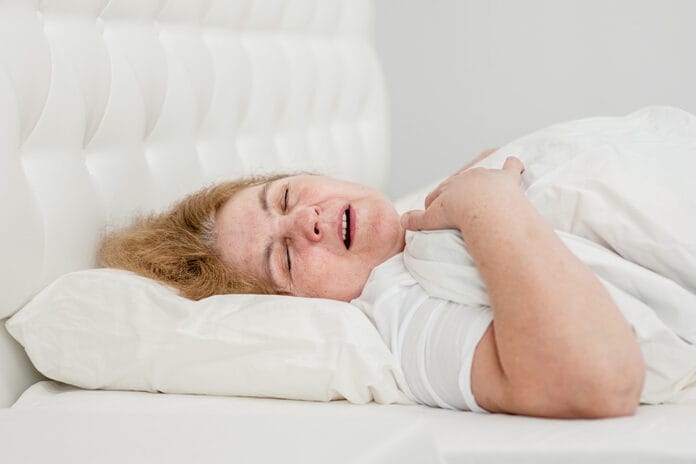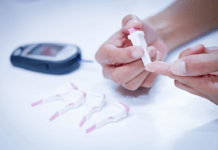As dental hygienists, we often find ourselves in a unique position to spot early signs of systemic health issues in our patients. One such issue that’s gaining more attention is obstructive sleep apnea (OSA), a condition where breathing repeatedly stops and starts during sleep. A study has shed light on the increased prevalence of OSA in middle-aged women, particularly those experiencing lower levels of estrogen and progesterone.1
This study is the first large-scale epidemiological investigation exploring the potential impact of female sex hormones on OSA. This study is significant as research focusing on women’s health is often neglected. This neglect has been directly attributed to delayed diagnosis, severe disease progression, and premature death of women.
The Study
The research team analyzed data from the European Community Respiratory Health Survey, which included 774 women aged between 40 and 67 from seven different countries. The survey, conducted between 2010 and 2012, collected information on the women’s respiratory health, lifestyle, sleep patterns, and hormone levels through questionnaires and blood samples.1
To form well-defined hormone groups, the researchers excluded women with gynecological conditions and those taking hormone-related treatments. Current pregnancy, lactation, and irregular menstruation were also exclusion criteria. The researchers used complete case analysis, excluding women with missing hormone levels or covariate data. The serum samples were analyzed at the Core Facility for Metabolomics at the University of Bergen using a sensitive method to measure hormone concentrations.1
Results
Out of the women surveyed, 71.2% (or 551 women) reported that they had been told they snore. Among these women, 411 also reported experiencing other symptoms of sleep apnea.
For those women who did snore, a doubling of the concentrations of three types of estrogens (17β-estradiol, estrone, and estrone 3-sulfate) was linked to a 17% to 23% decrease in the odds of irregular breathing during sleep. A doubling of progesterone concentration among snorers was associated with a 12% decrease in the odds of waking up with a choking sensation in the previous year.1
Discussion
Estrogens are also known for their antioxidant properties, which may be relevant in OSA, which increases oxidative stress. Previously published clinical studies on post-menopausal women have shown that hormone treatment could have positive effects on OSA. On the other hand, progesterone is a respiratory stimulant and may reduce the frequency of apneas, although the underlying mechanisms are not fully understood.1
The study’s strengths included the use of a well-characterized population sample, a novel reproductive aging score for continuous adjustment, the exclusion of women with abnormal hormonal profiles or using a hormonal medication, and objective hormone measurements.1
However, the study’s cross-sectional nature limited its ability to establish causality. Longitudinal studies with clinical evaluation are recommended to better understand the dynamics and biology of OSA in relation to sex hormones. Additionally, more focus on female-specific symptoms like fatigue, morning headaches, and insomnia could provide valuable insights.1
Conclusion
The researchers concluded that adjusting female sex hormones might be a potential strategy to decrease the high prevalence of OSA, especially in post-menopausal women. However, they also emphasized the need for further longitudinal studies to confirm these findings.1
As dental hygienists, understanding these findings can help us provide more holistic care to our patients. By being aware of the connection between hormone levels and sleep apnea, we can better educate our patients and potentially help identify those at risk. This study underscores the importance of considering a woman’s hormonal status, particularly after menopause, when developing comprehensive treatment strategies.
Before you leave, check out the Today’s RDH self-study CE courses. All courses are peer-reviewed and non-sponsored to focus solely on high-quality education. Click here now.
Listen to the Today’s RDH Dental Hygiene Podcast Below:
Reference
- Sigurðardóttir, E.S., Gislason, T., Benediktsdottir, B., et al. Female Sex Hormones and Symptoms of Obstructive Sleep Apnea in European Women of a Population-based Cohort.PLOS ONE. 2022:17(6): e0269569. https://doi.org/10.1371/journal.pone.0269569










